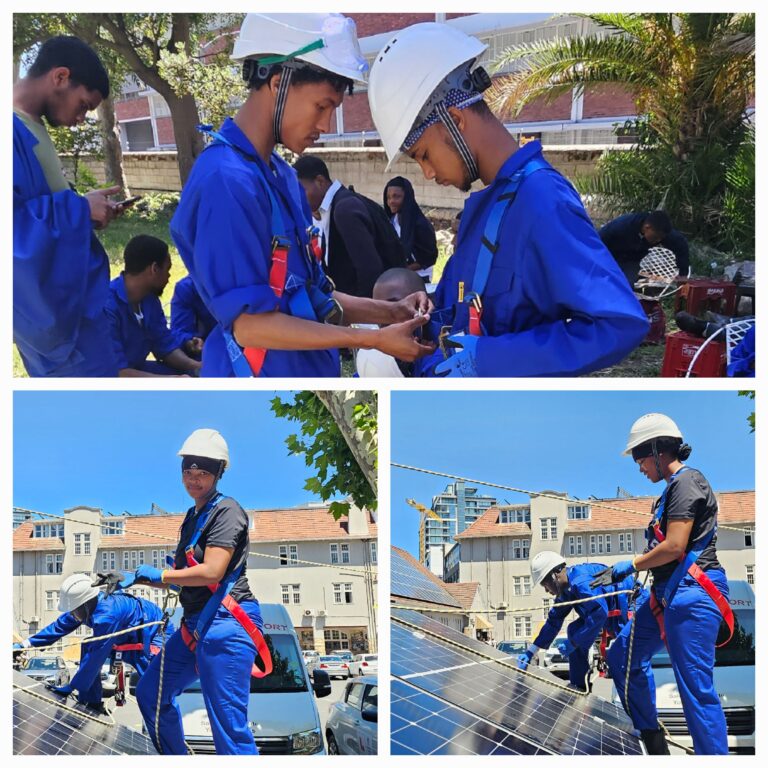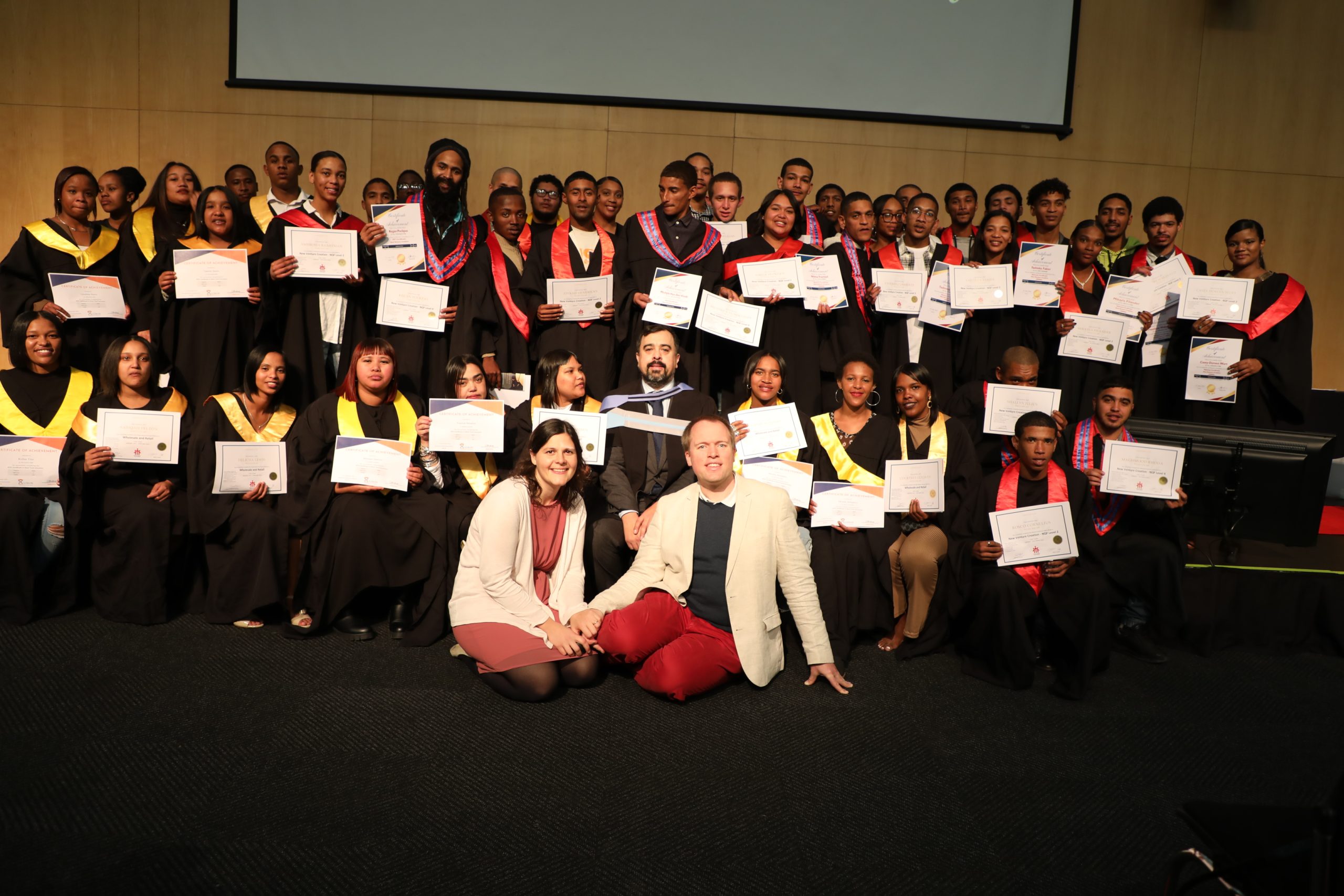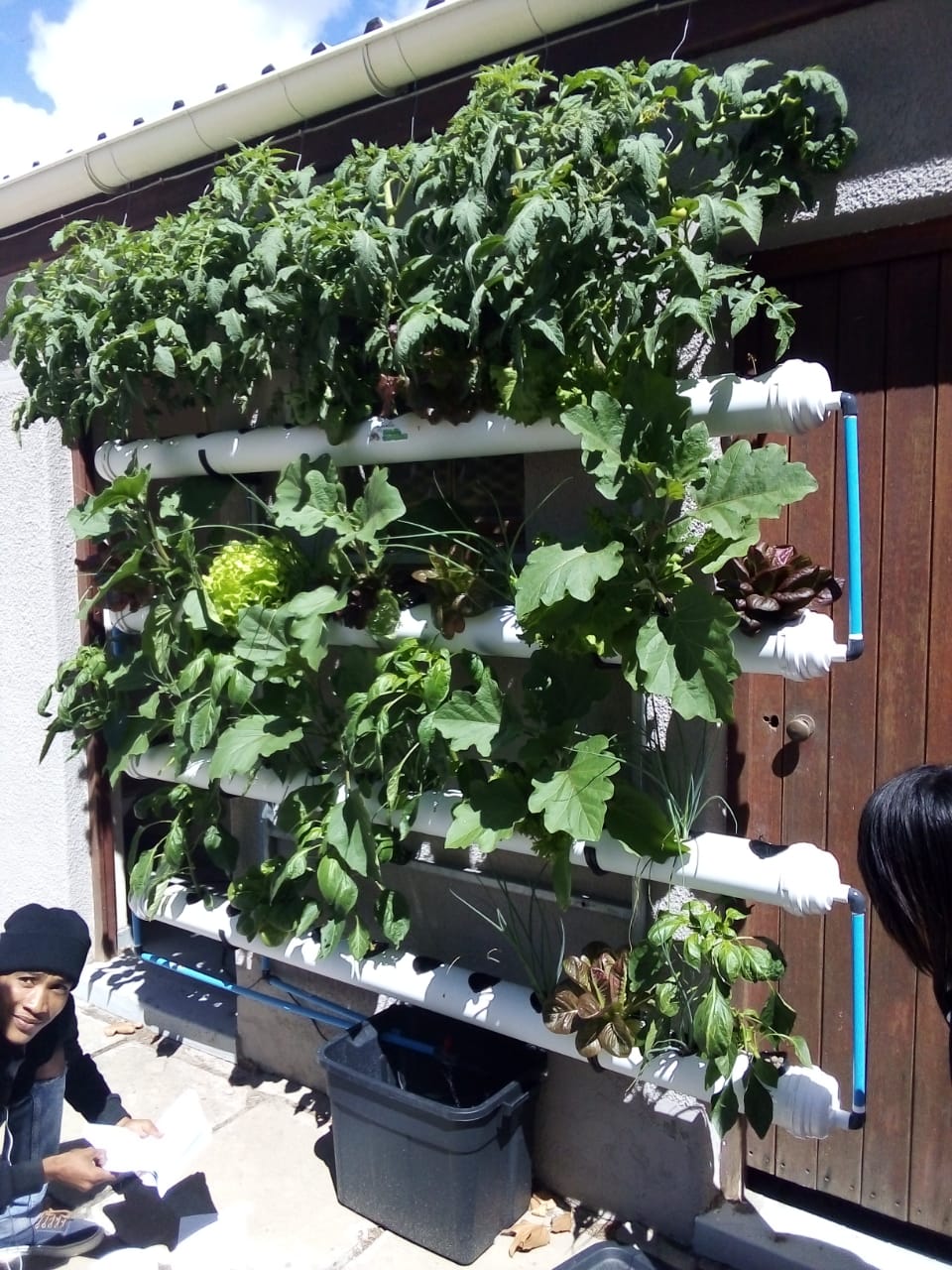Introduction to the NEETs Programme
NEET, an acronym denoting youth between the ages of 18 and 27 who are neither employed, engaged in education, nor receiving training, represents a significant concern within our country. The Salesian Institute Youth Projects (SIYP) has undertaken a pivotal role in addressing this challenge through the NEETs Programme, which forms an integral part of an intervention strategy.
Our approach is multi-faceted, combining essential Lifeskills training with Vocational Skill Training, all wrapped in an innovative framework of student-centred education using a project-based learning methodology. The core objective is to empower NEET youth by reintroducing them to the realm of learning, nurturing entrepreneurial skills, and providing them with valuable exposure to real workplace experiences.
Our NEETs beneficiaries are carefully selected from specific disadvantaged communities within the greater Cape Town area. This strategic choice is intended to foster social change within these communities, creating a ripple effect of empowerment and transformation.
The NEETs Youth Employability Programme is a SETA ( Sector Education and Training Authority) accredited and conducted in-house, leading to the attainment of a Further Education and Training Certificate in New Venture Creations, facilitated through the Services SETA and W&RSETA.
The programme spans over 12 months and encompasses three comprehensive modules:
The 12-month journey
Module 1 – Foundation Module (32 weeks)
This segment takes place at our Salesian Institute Youth Projects premises in Greenpoint, Cape Town. The initial two weeks are dedicated to orientation and Lifeskills training. To ensure all students can actively participate and grasp the material, the programme starts with fundamental refresher modules in areas like languages and mathematics. Once students have acquired the necessary skills, the focus shifts to the SETA modules.
Module 2 – Internship in Social Enterprises (6 weeks)
During this phase, participants engage in community-based projects that directly address critical community needs.
This not only hones their project management skills but also nurtures a sense of social responsibility fosters a deeper understanding of good citizenship and builds empathy towards their fellow community members.
Community development is key.
Module 3 – Organisation Module
(10 weeks)
The final module involves workplace learning within a partner organization.SIYP collaborates with a range of industries driven by entrepreneurial skills, including Insurance, Food & Beverage, and Wholesale/Retail.
This approach allows students to gain practical experience in their field. Industry partners plays a pivotal role in the programme.
Solar Photovoltaic Installer/Mounter Course

The NEETS Youth Employability Programme recognized the growing demand for skilled workers in the renewable energy sector and introduced a dedicated technical component to its training offerings. As a result, it now provides a standalone 6- or 12-month QCTO-accredited Solar Photovoltaic Installer/Mounter Course.
Designed for youth aged 18 to 27, the course requires a minimum Grade 11 pass with pure mathematics and equips participants with the technical knowledge and hands-on experience needed to install and maintain solar photovoltaic systems.
With the global shift toward sustainable energy solutions, this qualification opens doors to promising career opportunities in the rapidly expanding solar energy industry, empowering young people to build stable, future-focused careers.
Empowering youth for a brighter future
By supporting the skills training and employment of these previously unskilled young individuals, we are not only empowering them to lead active, productive, and successful lives but also actively addressing the issue of inequality and uplifting impoverished communities. The NEETs Youth Employability Programme reflects our unwavering commitment to effecting positive change and creating a brighter future for our youth who, due to various circumstances, are not afforded the opportunities to advance their education and training.

SETA Graduation Cohort 2021/22
A graduation ceremony for the 2021/22 students was held on June 26 at the Old Mutual building in Pinelands. The event aimed to honour the hard work of SIYP's students and to host a handover ceremony issuing their SETA certificates.

Entrepeneurials Skills
SIYP's NEETs Programme takes a multi-faceted approach, combining essential Lifeskills training with Vocational Skill Training, all within an innovative framework of student-centred education using a project-based learning methodology. The core objective is to empower NEET youth and reintegrate them into productive society, helping them gain valuable skills and exposure to real workplace experiences.

Hydroponics
This large-scale hydroponics community project involves workshops with students, their families, and community members, as well as the production and distribution of home hydroponics kits and the commercialization of produce.
